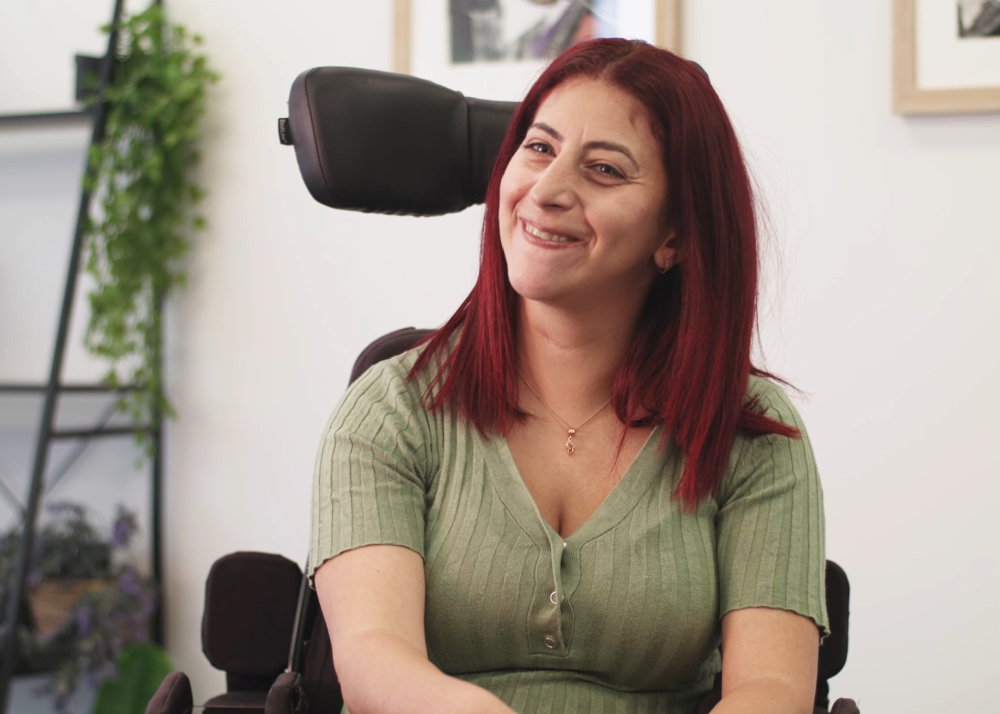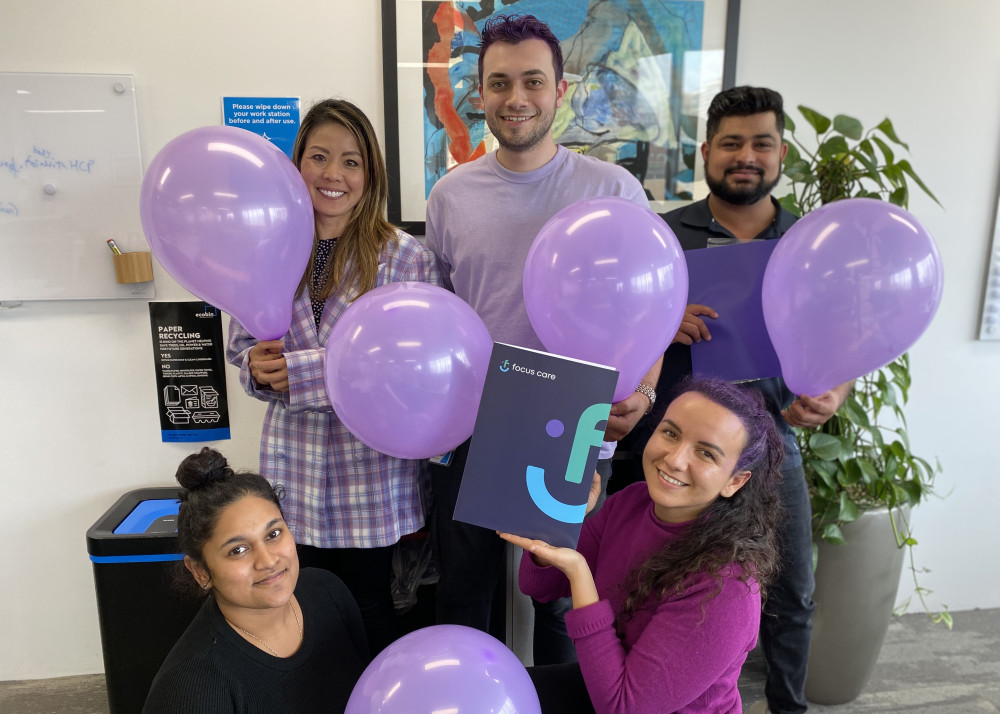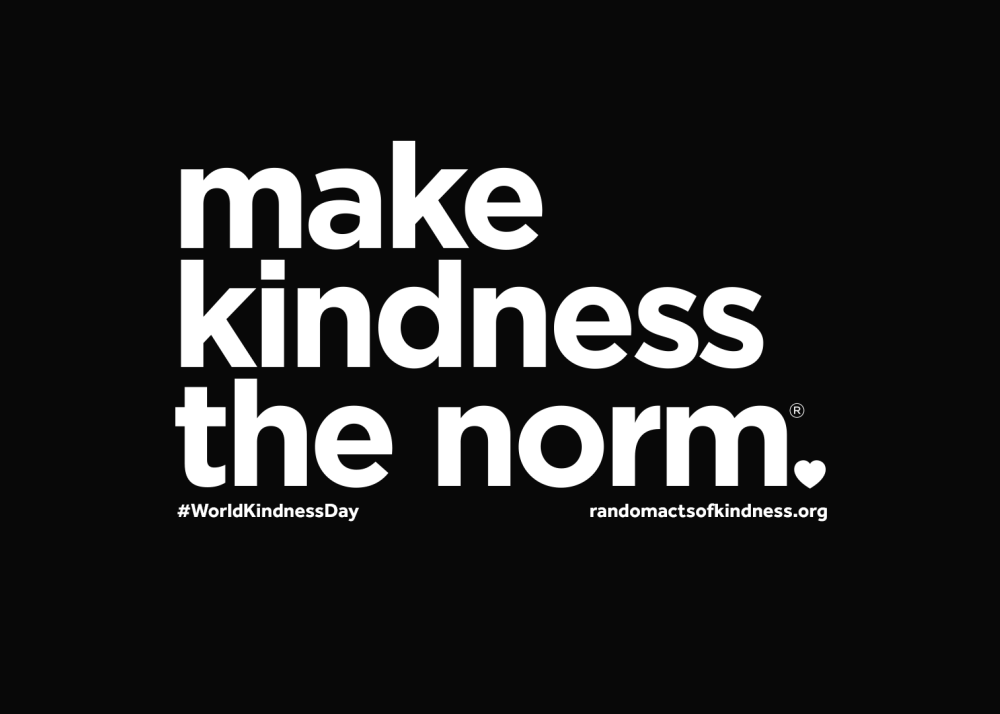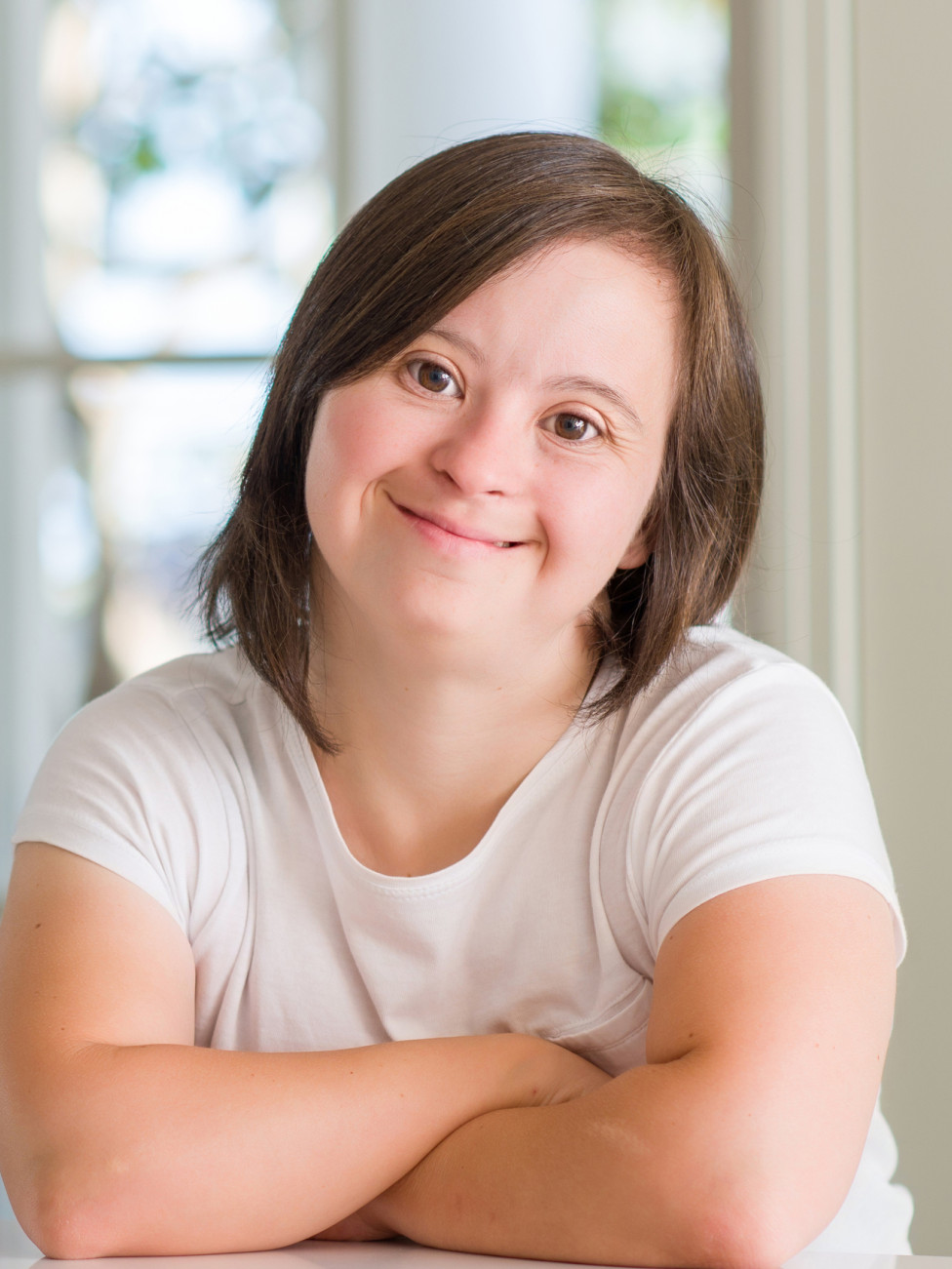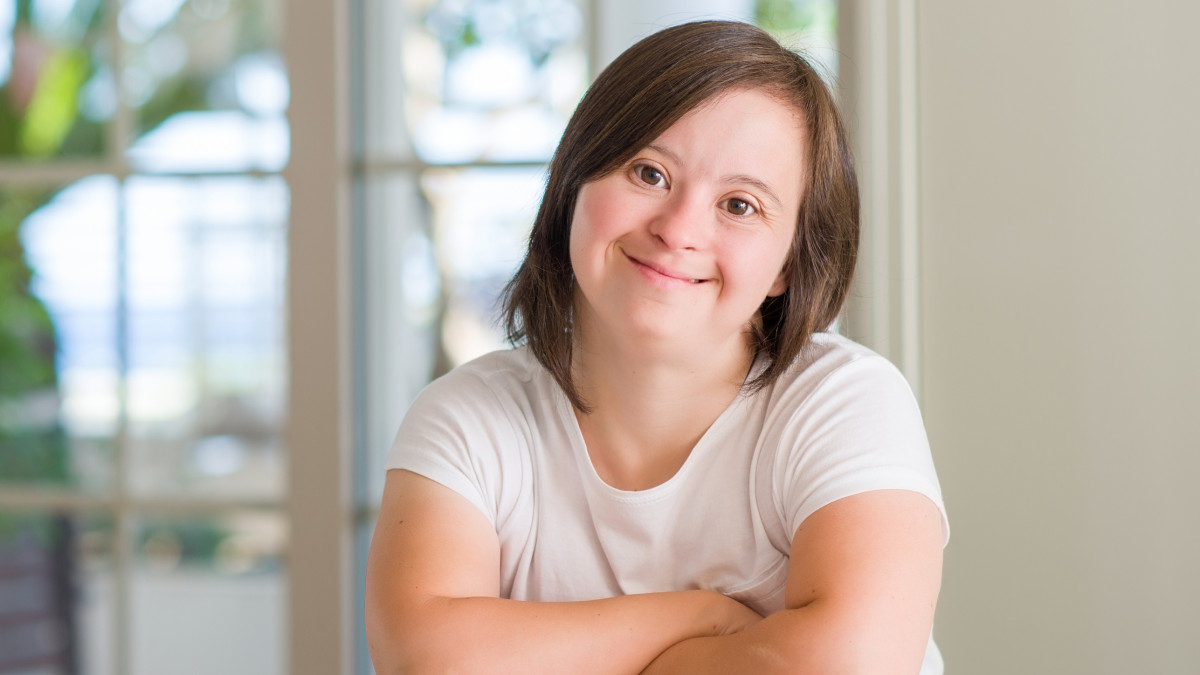World Down Syndrome Day 2022 #InclusionMeans
21 March, 2022
Focus Care's General Manager of Home Care Services - Katie Brown - reflects on this year's World Down Syndrome Day theme: #InclusionMeans.

Today is World Down Syndrome Day and the theme for this year is #InclusionMeans. As a mum and the General Manager of Home Care Services at Focus Care (providing disability home care services in Sydney, Regional NSW, Melbourne, and the Sunshine Coast), the theme made me pause to consider my personal experiences and the values I try to instil in my children.
My upbringing and parents’ view of the world shaped the person I was as a child; my life and work experiences have shaped my views since that time, and they have become quite different from my parents’. As I reflect on my children’s view of inclusion, I am proud of their sense of justice (and injustice) at local and global events; but are they inclusive in their treatment of other people and specifically people with Down syndrome or other disabilities?
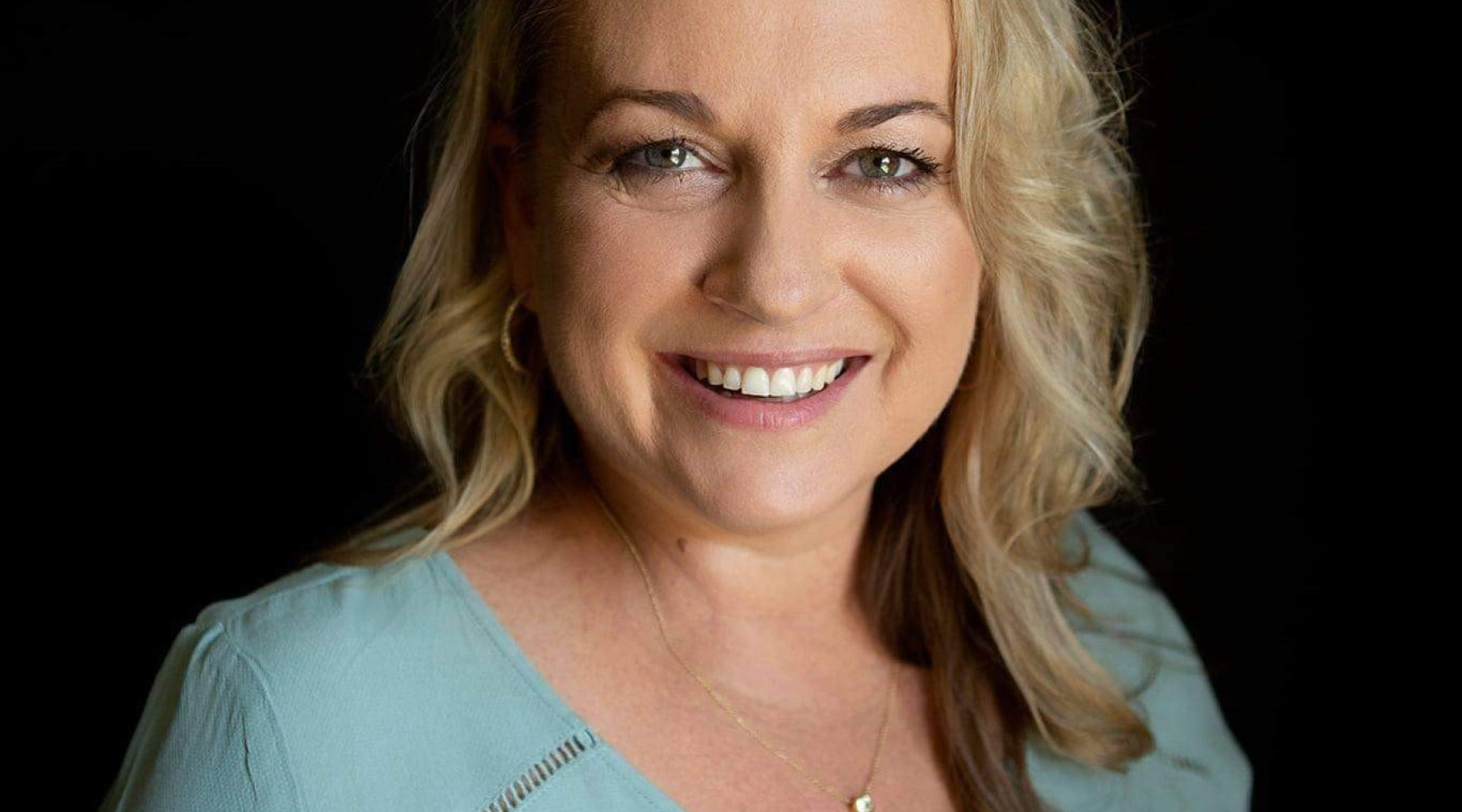
Katie Brown - Manager of Home Care Services at Focus Care
I recall the first time I noticed a person with Down syndrome. It was a teenage boy (a bit older than me) who caught the same bus after school. I remember him smiling a huge and very generous smile at me the first time our eyes met. From then on, every afternoon he would say hello, and I would smile and say hello back. I was in about grade four or five and I recall we may have spoken a few times beyond “hello”, but my little sister was frightened of him, so I tried to protect her from the interactions. Reflecting on this now as a 48-year-old adult, anyone with a visible difference to us as children in the eighties was a bit of a mystery and even a bit scary. I don’t recall us ever having a discussion or education from our parents to help us understand the differences, or more importantly the similarities between us and someone with a disability.
In the eighties “inclusive education” wasn’t as widely implemented as it became in the nineties, so I did not have much exposure during my school years to children with disabilities. When I started studying a teaching degree at university in 1991, my eyes were opened to the theory and intention of “inclusive education” and even more so when I commenced my teaching career. I was introduced to great organisations like Braille House and found myself learning basic Auslan sign language, using adaptive technology in the classroom, and considering my teaching strategies to ensure all of the children in my classroom had the same opportunities to learn.
Fast forward to 2003 and I am 11 weeks pregnant with my first child after numerous IVF attempts, I am about to have the nuchal translucency scan that can help the doctor estimate the risk of your baby having a genetic condition. As an expecting parent you are asked to consider things like whether you will continue with the pregnancy or have a potential life-threatening (to your baby) amniocentesis at 16 weeks to confirm the “risk” identified at the 11-week scan. Did the pre-natal screening affect my views on having a baby with a disability? I know it did, and I know it has affected many of my friends and family who have gone through the pre-natal screening process. That process made Down syndrome and other types of genetic conditions something to almost be feared by expecting parents. That fear flies in the face of inclusion.
I am pleased to say that my children have shown me that inclusion is something they just do. I have seen them create beautiful friendships with other children; some with disabilities, some from different cultural and religious backgrounds, others who are discovering their sexual orientation, children with different interests, and others with the exact same interests but perhaps different abilities. And most importantly I have also seen them advocate and stand up for these friends, when others don’t understand due to lack of education or fear.
I believe as a society we have come a long way since the seventies, but if you ask parents of children with disabilities living in Australia today, they will tell you we have a long way to go.
Now, in my chosen career working within the home care services sector, I have had the privilege of providing disability support and NDIS support coordination to people who have Down syndrome and their families. Our mantra at Focus Care is to provide personalised disability home care services to help our clients live their best life.
So, what is inclusion…really?
In its simplest terms it is the action of including or being included within a group or structure. To dig a little deeper, it also means that in both policy and practice we should provide equal access to opportunities and resources for people who might otherwise be excluded or marginalised. (Oxford Dictionary: cited 18 March 2022)
What does #InclusionMean to the manager of a disability support provider?
#InclusionMeans thinking about my actions at home and at work to make sure I create an environment where everyone is respected and wants to share their unique skills, abilities, and strengths because that is just what we do around here.
And to celebrate World Down syndrome Day, I also asked my kids, my staff and a couple of our clients who have Down syndrome and their families to share what #InclusionMeans to them and this is what they said…
#InclusionMeans “ensuring no one is denied from activities no matter their age, race, disabilities, religious beliefs and so on. We are living in an age where exclusion is slowly becoming less and less of an issue, however we still have a long way to go. To include someone is to ensure that everyone can be involved without having to worry about differences.”
Kayla (my 17-year-old daughter)
#InclusionMeans “incorporating others into a group or activity.”
Joel (my 14-year-old son)
#InclusionMeans “I want to play my guitar and join a band for everyone.”
Anthony (client Focus Care Sydney)
#InclusionMeans “having a world where everyone is treated and viewed equally. Anthony is so sweet but often doesn’t get looked at the same as everyone else when he is out in public. People like Anthony are so beautiful and often get overlooked.”
Maria (Anthony’s sister)
#InclusionMeans “the art of ensuring that all people feel welcomed, celebrated, and appreciated for exactly who they are.”
Kaori - NDIS Support Coordinator (Focus Care Sunshine Coast)
#InclusionMeans “providing equal opportunity; not discriminating based on culture, ethnicity, religion, sexuality, age; celebrating diversity; supporting accessibility; respecting everyone’s rights, voice and individuality; an enhancing awareness”.
Focus Care Sydney NDIS Support Team
What does #InclusionMean to you?
Article written by Katie Brown, General Manager of Home Care Services at Focus Care.
What is Downs syndrome?
Down syndrome occurs at conception when they develop an additional chromosome 21 in each of their cells. It is a genetic condition – not an illness or disease.
A person with Down syndrome is as unique from another person with Down syndrome as any two people without a disability are from one another. They will have different interests, likes and dislikes; different personalities and things that they are good at. They may have a level of intellectual disability, and they may have characteristic physical features.
How can Focus Care help?
Focus Care is an approved NDIS and Home Care Package provider of in-home aged care and disability support in Sydney, the Newcastle Hunter Region, Central Coast, Armidale, Brisbane, Sunshine Coast, Gold Coast and Melbourne.
Some of the many disability services that assist our clients with Down syndrome are:
Social Support to foster strong communication and socialisation skills
Carer Respite to support the physical, mental, and emotional wellbeing of parents, siblings and carers of the client
Transport to and from the shops, activities, work, school and appointments
Shopping for groceries, cleaning and cooking
Showering and grooming
Creative therapies such as Art Therapy and Pet Therapy, which can improve emotional connectivity, communication skills, general happiness and fine motor skills
NDIS Support Coordination to coordinate services and supports
As an approved provider under the NDIS scheme, all of our services are available under the NDIS.
If you or a loved one are looking for support for Down syndrome, contact us today to see how we can help.
